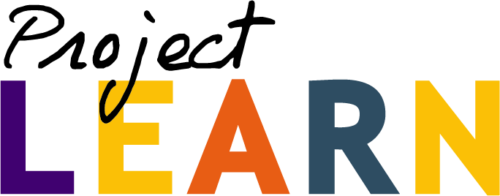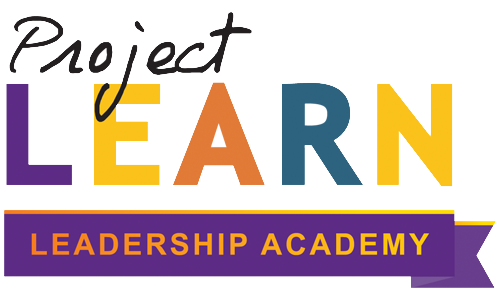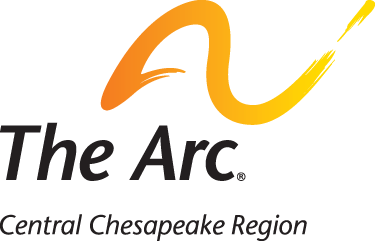
About the Project
The Arc Central Chesapeake Region, in partnership with Education Team Allies, has launched Project Learn. The project focuses on supporting parents and students with intellectual and developmental disabilities to understand the Individualized Education Program (IEP) process and become strong self-advocates.
Is Project Learn right for my family?
Are you interested in applying for Project Learn?
Please complete the registration form. Our Family Navigator will contact you soon!
For assistance with the form or general Project Learn information, please email your questions to resources@thearcccr.org.
Parent Resources
Where do I get started?
For a visual representation of the information below, check out this infographic.
The first step after your child is diagnosed with a developmental or intellectual disability is to talk to your child’s teacher. Open communication with your child’s teachers is very important. If your teacher is not responsive, contact the building principal.
This is also the first thing to do if you are worried about their progress in school.
You can also begin gathering informal data: This is anything that shows what you are concerned about. School papers, report cards, notes from teachers, things you see yourself at home. You can even video your child on your phone to record behavior you are concerned about.
Gather test and assessment results from your child’s doctor if you have any.
If talking to your child’s teacher doesn’t get you the help you need, you can make a written request for an IEP Assessment meeting or 504 meeting. This request can be made to your child’s teacher or principal, and it should be dated. Emails are a good way to record your request.
Continue gathering informal data. At the meeting, share your concerns and any tests or assessments you already have. The school may order testing.
Keep all assessments, notes and other data together in a binder that you can carry to meetings
When assessment results are in, a meeting will be held to decide if an IEP or 504 plan is needed. A 504 plan may be developed if your child needs accommodations in order to be able to do their school work. An IEP, or individualized Education Program, may be developed if your child needs for their school work to be adjusted for them to learn.
IEPs and 504 plans are developed by the IEP team working together. First, the student’s Present Level of Performance is looked at, with school and medical records, observations and assessments.
Neither the school nor the parents can simply state what services and supports they want for the students without reviewing the data to see if these are necessary and useful for the student. For example, parents cannot state at the start of a meeting that they want a one-to-one aide for their child without demonstrating why an aide is needed and what benefit an aide would be to the child. Also, school staff cannot tell parents “We don’t do that at this school” but must demonstrate why a suggested service or support is not necessary or useful.
The team will work together to set goals for the student for the school year. These should be specific, measurable and achievable goals of what the student will be able to do, not simply a list of what the student is working on. For example, “Student will be able to name primary colors with 90% accuracy”, not “Student is working on recognizing colors”
Communication between the parents and the school, and the student as they are able to participate, is important in making sure the IEP meets the goals of the team for the student.
Parents and school staff will track progress on goals throughout the school year. Parents can request more frequent reporting than regular report cards, including weekly or daily reports if necessary.
If a child transfers from one school to another in the district, their IEP is transferred with their school records to the new school by the guidance department.
If parents have concerns, they can call an IEP team meeting at any time.
Who is part of my IEP team?
For a visual representation of this information, check out the Who is at the IEP table? visual aid.
Student
Students may attend when the team feels they are ready. By law, they may attend beginning at age 14
Parents
Parents can call an IEP meeting whenever they feel one is necessary. By law, a meeting must be held at least once a year. If parents are unable to attend in person, they may join the meeting by telephone or online.
Special Education Teacher
The special education teacher attend if the student is, or might be, in a special education program. They are the expert on what services are currently available in the student’s building.
General Education Teacher
The general education teacher attends if the student is or might be in a general, or “regular” classroom. They are the expert on what is taught at the student’s grade level.
School District Representative
The school district representative is the expert on what services are currently available in the student’s building.
School Psychologist
The school, or district, psychologist is the expert on testing and student behavior. They should have observed the student, or seen their test results, before the meeting.
Occupational Therapist
The Occupational Therapist attends when the student receives, or the team is considering, occupational therapy. They should have observed the student, or seen their test results, before the meeting.
Speech/Language Therapist
The Speech/Language therapist attends when the student receives, or the team is considering, speech/language therapy. They should have observed the student, or seen their test results, before the meeting.
Additional Individual
Additional individuals can be invited to the team if they know about the student’s needs and abilities. Examples include babysitters or other caregivers, Scout leaders, other family members, and extracurricular leaders. Parents can also bring a person with them to take notes during the meeting.
What is a transition plan?
A transition plan takes the student’s interests and preferences into account alongside their post-secondary goals, course of study, and expected timeline for exiting high school. Students will be interviewed and assessed on an ongoing basis to discuss their interests and preferences to make sure their transition plan is best-suited to their strengths and goals around employment, education, training, and/or independent living after high school. For more details, check out our Transition Plan Information Sheet.
Where can I get started in my county?
For resources related to IEP/504 support in Anne Arundel, Talbot, and Queen Anne’s Counties, check out our Project Learn County-Specific Resources Sheet. Please note that these resources were picked primarily for children enrolled in the public school system with an IEP/504 need. Please contact our Family Navigator at resources@thearcccr.org for more information about the many other resources available to your child.

The Arc Central Chesapeake Region, supported by Education Team Allies, is pleased to announce an interactive new program for students with IDD that will help facilitate their understanding of the IEP process. Teachers, parents, and mentors are encouraged to share this information with their students and have them reach out to our family navigator for more information.
Is your student:
- 11-17 years of age enrolled in a public school* with an IEP?
- Interested in taking charge of their own education?
- Interested in learning more about how to communicate their needs to their teachers?
- Willing to attend five fun sessions where they learn more about how to make the IEP work for them?
This program is free and includes all materials and instruction. Students will complete the class with a workbook full of information about their wishes, needs, and personal interests that will help them inform their next IEP, and encourage them to be self-advocates in this important process.
For information, please contact resources@thearcccr.org
*Students in Anne Arundel, Queen Anne’s, and Talbot counties are currently eligible for this program.

This project was supported, in part by grant number CFDA 93.630, from the U.S. Administration for Community Living, Department of Health and Human Services, Washington, D.C. 20201. Grantees undertaking projects with government sponsorship are encouraged to express freely their findings and conclusions. Points of view or opinions do not, therefore, necessarily represent official ACL policy.
